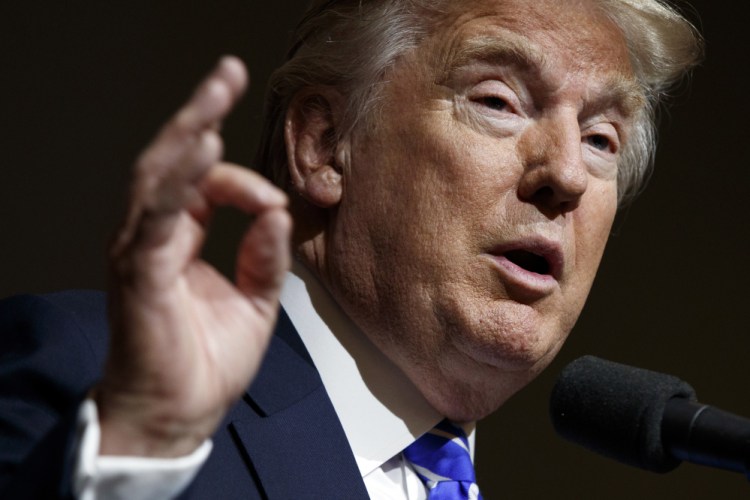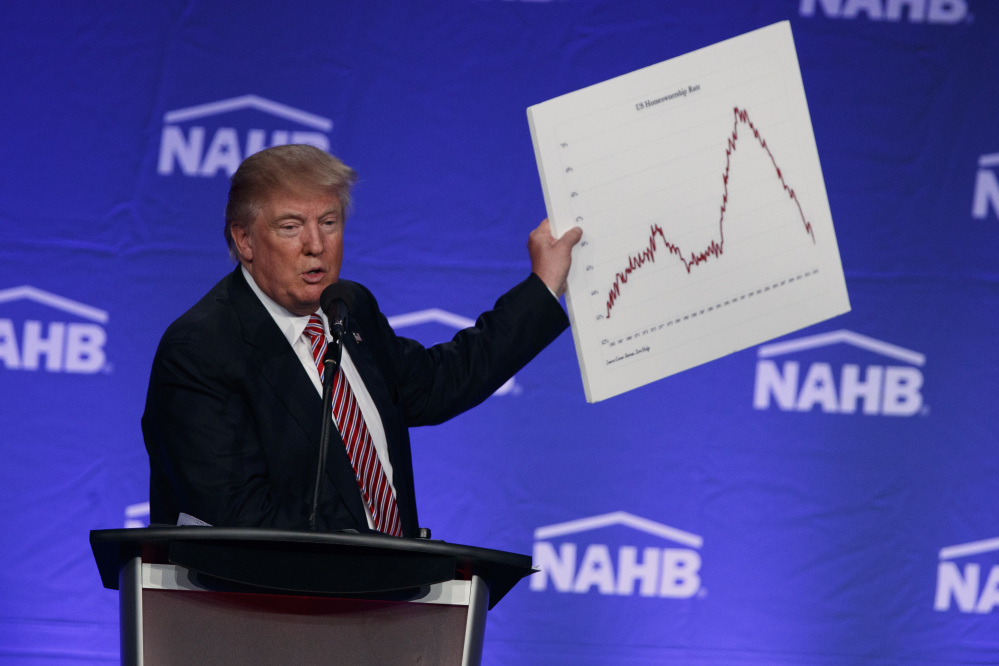ORLANDO, Fla. — Straying from his trademark bravado, Donald Trump acknowledged Thursday that his presidential campaign is facing challenges and could ultimately fall short – a rare expression of humility by the Republican presidential nominee.
Trump’s most explicit concession came as he pleaded for support at a gathering of evangelical ministers, where Trump observed he was “having a tremendous problem in Utah.” It came the same day the billionaire celebrity acknowledged that his lack of political correctness could cost him the election if Americans reject his blunt approach.
“We’re having a problem,” Trump told the ministers, adding that the next president could get to nominate up to five high court justices. “It could cost us the Supreme Court.”
After trouncing 16 challengers in the Republican primary, Trump is encountering worrying signs as his campaign moves into the general election. Democrat Hillary Clinton’s lead over Trump in national polls has widened in recent days, while a number of fellow Republicans have declared they won’t support their own party’s presidential nominee.
In Utah, typically a reliably Republican state, Trump’s challenges have been particularly striking. The state’s large Mormon population has voiced serious skepticism about Trump, though the state’s Republican governor has endorsed him.
“We’ve really been given a false narrative,” Trump said of his struggles in Utah.
Yet in other traditionally Republican-leaning states like Arizona and Georgia, too, Republicans are concerned Trump’s unpopularity could give Democrats an improbable victory. The concerns are compelling enough that dozens of worried Republicans gathered signatures Thursday for a letter to the Republican party chairman urging him to stop helping Trump and focus on protecting vulnerable House and Senate candidates.
Trump, who typically boasts of how overwhelmingly he’s going to win the election, seemed less assured during a round of interviews and public appearances on Thursday. Asked by CNBC how he planned to reverse the advantage that Clinton has opened over him, Trump said he simply planned to do “the same thing I’m doing right now.”
“At the end, it’s either going to work, or I’m going to, you know, I’m going to have a very, very nice, long vacation,” Trump said.
Expressing anything other than confidence fewer than three months to Election Day is an unusual posture for a major party presidential nominee.
At the evangelical summit in Orlando, Trump beseeched religious leaders to convince their followers to show up to vote for him.
“Whatever you can do, I appreciate it,” he said.
Trump’s unusually candid reflection about the uncertainty of his electoral prospects came as he’s struggled to keep the focus on his opponent – Clinton – and avoid unwanted distractions. Earlier this week he caused a major stir with comments about the Second Amendment that were perceived as advocating violence against Clinton, and found himself facing questions yet again after declaring Wednesday that President Obama was the “founder” of the Islamic State group – a claim that’s patently false.
Send questions/comments to the editors.



